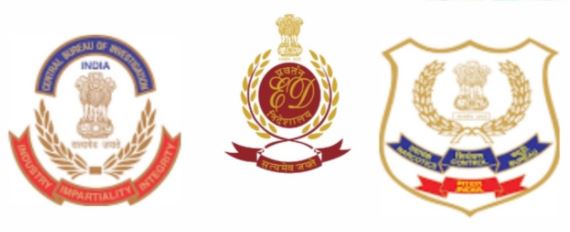Sushant Singh Rajput’s death case has been under investigation for over four months now. The country’s top three central agencies, the Central Bureau of Investigation (CBI), Narcotics Control Bureau (NCB), and enforcement directorate (ED) have been probing the case from different angles. A day after the Supreme Court handed over the probe into the death of Sushant Singh Rajput (SSR) to the Central Bureau of Investigation (CBI), the agency decided to segregate the special investigation team (SIT) into three groups and send them to Mumbai to begin the investigation. Each group had been assigned different tasks. One of them had to investigate documents and the case diary. The second group was to interrogate Rhea Chakraborty, her family members, and other accused. The third one was to probe the alleged Dubai mafia link with Bollywood. On August 4, Lok Janshakti Party (LJP) Chief Chirag Paswan, BJP leader Nishikant Dubey, and Sushant Singh Rajput’s father requested Bihar Chief Minister Nitish Kumar to transfer Sushant Singh Rajput’s death case to the CBI.
A hearing on Public Interest Litigation (PIL) seeking transfer of Sushant Singh Rajput’s death case to the CBI was postponed by the Bombay High Court due to heavy rains in Mumbai.
A CBI inquiry in the Sushant Singh Rajput death case was recommended by the government of Bihar, and on August 5, the central government accepted the recommendation by the Bihar government for a CBI probe.
Later CBI filed its submission in the apex court. It said that the CBI and ED should be allowed by the Supreme Court to continue the investigation in the death case.
An official from the NCB said the ED had retrieved deleted WhatsApp data of Rhea’s phone and had come across information indicating that she was in touch with some people dealing with drugs. Acting on information provided by the Enforcement Directorate on Rhea Chakraborty’s WhatsApp chats allegedly related to “banned drugs”, the Narcotics Control Bureau (NCB) on August 26, registered a case of offense against the actor under sections 20,22, 27, and 29 of the Narcotic Drugs and Psychotropic Substances (NDPS Act). The CBI is investigating and probing the incidents and alibi which culminated in the actor’s death while the NCB is looking into the drug angle. The ED has been, meanwhile, investigating money-laundering charges against Rhea Chakraborty. The investigations are still underway. While the agencies probe various angles, much private information related to the death of the young actor has been surfacing on the internet. In such a situation, it is obvious to raise questions on the privacy that these agencies pledge to serve. A group of retired police officials filed a PIL that said that sensitive information was being broadcast during television channel coverage of the actor’s death and the petitioners questioned the source of the information. They asked whether the investigating agencies were leaking out these sensitive details. The petitioners asked, “How were the channels getting access to such information?”. They also alleged that the probing central agencies must have been the sources of the leaks.
The Central Bureau of Investigation (CBI), Narcotics Control Bureau (NCB), Enforcement Directorate (ED) that are investigating the different angles and offshoots of the Sushant Singh Rajput death case told the Bombay High Court that the central agencies did not leak any information” at any point of time”. Anil C. Singh, Additional Solicitor General informed the court during a PIL hearing that there is “no question of leaking” information. A two judges bench of Chief Justice Dipankar Dutta and Justice G.S. Kulkarni was hearing the public interest litigation filed by former IPS officers alleging that some news channels are maligning the image of Mumbai police in the SSR death case and asked the court to restrain the media coverage. The High Court is hearing arguments on whether statutory mechanisms are required to control the TV news content.
The author is a student member of Amity Centre of Happiness.





